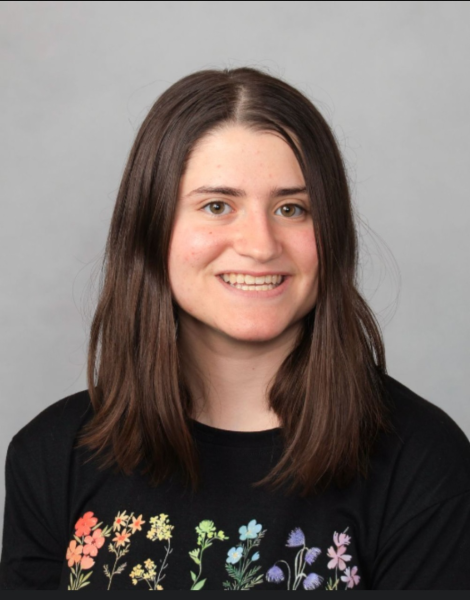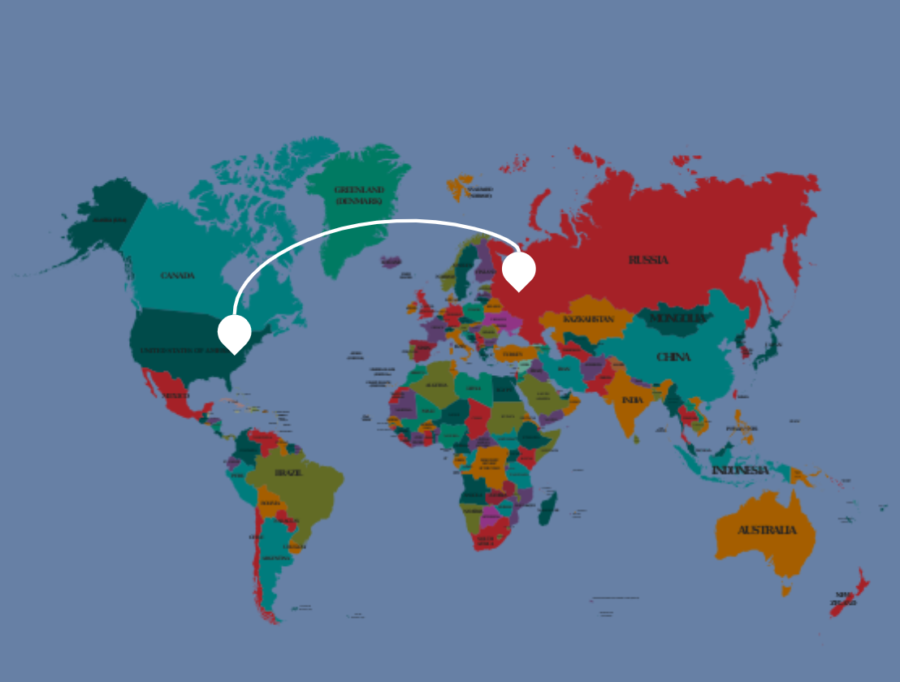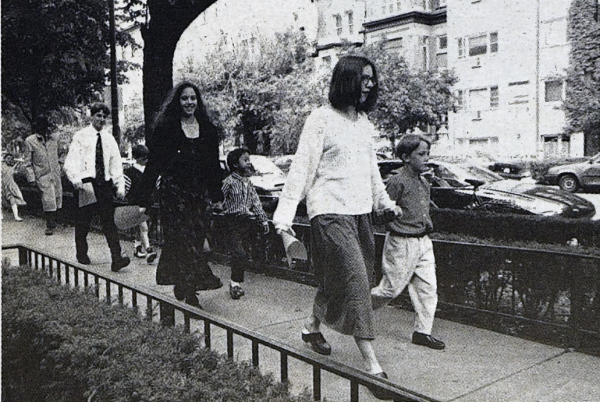Journalism Abroad Proves a Challenging Feat
OpenClipart (edited by Scarlet Gitelson)
Evan Gershkovich’s arrest in Russia marks the latest in a series of political flashes between Russia and the U.S.
Wall Street Journal foreign correspondent Evan Gershkovich was arrested in March 2023 under espionage allegations in Russia, where he is still being held. The U.S. government has condemned the capture and demanded his release. As events continue to unfold, the case displays deeper political motivations and showcases differences in media frameworks between the two countries.
From a political perspective, arrests like Gershkovich’s can put countries in an advantageous position. Upper School history teacher Kristin Gulinski said, “The party that is holding an individual tries to use it as political leverage; the entity that is trying to get the individual free knows this and has to be very careful not to give in to the demands.”
Similarly, sophomore Myles Levine said, “For Russia, the motivation is to be able to have leverage by having people, because the U.S. in the past [has] been willing to trade a lot of their attributes to get their citizens back.” One recent example of this process was in December 2022, when the U.S. traded the release of basketball star Britney Griner for that of a convicted Russian arms trafficker.
Although political processes like these may affect the occasional reporter, foreign correspondents already face an intricate and demanding task of capturing a snapshot of another culture and political system. Lori Hinnant ‘93, a Pulitzer Prize winning correspondent and Latin alum, said, “When you’re reporting abroad, in general, you’re bringing an outsider’s look at something that everyone around you knows very well, and there are things that are obvious to them that are not necessarily obvious to you.”
When working in war zones, or other areas of conflict, reporting becomes particularly complicated and dangerous. Latin alum Alexandra Salomon ‘90, a WBEZ editor and former foreign correspondent, said, “I know many, many reporters who have reported in conflict areas where wars are going on and have certainly talked about being in the midst of a bombing and legitimately afraid that they were going to die because the shelling was taking place around them.”
When viewed through the lens of freedoms of the press, these difficulties become far more daunting. In stark contrast to many other nations, the U.S. has a multitude of protections for these rights. Describing countries abroad, Ms. Salomon said, “You have places where really there is absolutely zero freedom of the press—where all the media is state-run and kind of serves as a propaganda arm of the government.”
Disparities in these rights take the already-present challenges of international journalism and amplify them by forcing journalists to mind the cultural gap between countries with different press freedoms.
Oftentimes, within these countries, reporters are met with misunderstanding from the outset. “It can be challenging for a reporter coming from somewhere else to help people even understand who you are and what you’re about,” Ms. Salomon said. “They might be mistrustful.”
Additionally, countries with little freedom of the press often assign “minders,” or government-appointed agents, to accompany foreign correspondents. These people can complicate the reporting process by making quotes and information harder to find. Ms. Salomon said, “If you go see a source, and there’s this government person with you, the source might not feel comfortable to say what’s on their mind.”
These variations in freedom of the press, along with other patterns in personal freedom, are often measured using tools called freedom indices. Having a low freedom index indicates less personal freedom and likely less freedom of the press compared to countries with a higher index.
Ms. Gulinski said, “Journalists who go into geographic realms where the index is low risk their lives because many of these governments do not want the truth told and censor their own media to keep their populations under strict control.”
However, journalists working abroad in countries with low freedom indexes are not the only ones threatened. Ms. Hinnant noted that colleagues who are from the country you are reporting in “are in considerably more peril than you are because this is their home; you can always leave.”
Relative to other countries, the U.S. has a fairly high freedom index and a variety of protections for journalists. “Generally speaking in the U.S., we have pretty robust laws covering the freedom of the press,” Ms. Salomon said. “We have something called [the Freedom of Information Act (FOIA)], where we can ask [or] request that the government provide documents to us, and under the law, they have to provide those documents.”
Regulations vary widely from country to country, however, meaning journalists have to understand rules specific to the location they are working. Ms. Hinnant said, “You’re reporting in general with the agreement of the government of the country you’re in, so you have to know what the laws are, and you have to obey those laws. That doesn’t mean that if there’s a country with absolutely no freedom of the press that you don’t have some maneuvering room, but it does make it a lot harder.”
Differences in freedom of the press were likely part of what led to Gershkovich’s arrest earlier this year. Sophomore Alek Branovacki said, “In the U.S., freedom of the press is an utmost important attribute to this country rooted in its founding. However, countries like Russia have limited the freedom of the press to control their people.”
Indeed, Russia’s recent press regulations, such as effectively banning criticism of the armed forces, has been part of what has dropped its ranking to the bottom 20 countries on some freedom index rankings. Many of Russia’s regulations on freedom of the press place it among numerous countries that “have state-run media where the government is the one funding the media so it’s not as independent, necessarily, of the government’s point of view on things,” Ms. Salomon said.
Much of the difference in media coverage in countries like the U.S. and Russia is due to differences in cultural norms. “In the U.S., it’s sort of expected that journalists will ask questions, and tough questions, of politicians—that’s just part of our culture,” Ms. Salomon said. “That is not the case in a lot of other countries—there isn’t this culture of access to public officials.”
And press regulations affect more than journalists. Just as freedom indices attempt to broadly measure personal freedom, freedom of the press—or lack thereof—can also affect the lives of citizens across the nation. Ms. Salomon said, “The climate in a country around access to free press, like a free and vibrant press, does have ripple effects in all sorts of other areas.” As Latin students continue to stay conscious of the world around them by interacting with the press, these ripple effects create waves throughout our community—waves that have the power to shape students into articulate, analytical, and aware adults.

Scarlet Gitelson (‘26) is delighted to be serving as one of this year’s Editors-in-Chief. Using her writing, she seeks to promote connection and discourse...




















































